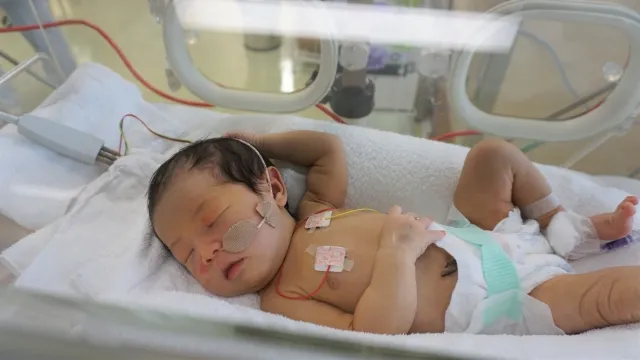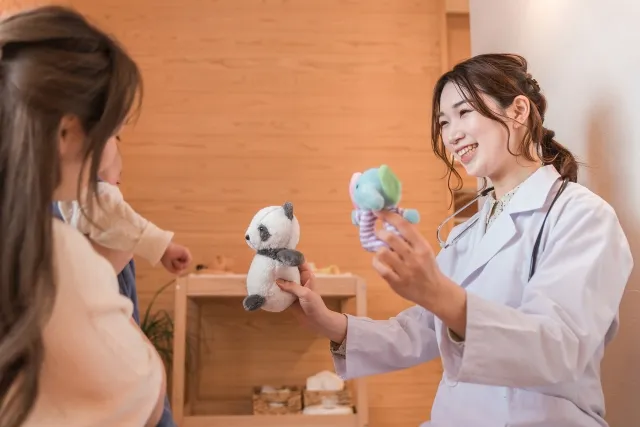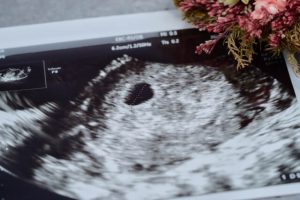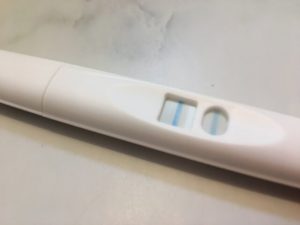When a baby needs to be hospitalized for any reason after pregnancy and childbirth, the place for treatment is the NICU. This article introduces the features and costs of the NICU.
What is NICU where newborn babies are hospitalized?
NICU stands for “Neonatal Intensive Care Unit.” It is a specialized intensive care unit for newborns that need focused management and treatment, such as preterm babies, low birth weight infants, babies with heart conditions, or those who cannot breathe properly on their own.
In the NICU, doctors and nurses specialized in neonatal care monitor the babies 24/7. The unit is equipped with various machines to check the babies’ breathing, heart rate, and body temperature. Since babies admitted to the NICU might be more prone to developing further complications or illnesses, they are supported not only by their attending physician but also by specialists in pediatric surgery, neurosurgery, otolaryngology, ophthalmology, cardiology, and other fields.
Incubators acting as substitutes for the mother’s womb
Babies admitted to the NICU grow in incubators. The role of the incubator is to regulate body temperature and humidity, and to prevent infections. Newborns have low self-regulating body temperature abilities and lack sufficient subcutaneous fat, making it difficult for them to maintain a consistent body temperature. If they are in a room cooler than their body temperature, they may use a lot of energy to keep warm, or become more susceptible to illnesses. The incubator adjusts the temperature to keep the baby’s skin at a comfortable 36-36.5 degrees Celsius, creating an optimal environment for the baby.
Moreover, since newborns have underdeveloped immune systems, the incubator helps protect them from various germs.
Various Machines that Sustain the Baby’s Life

The NICU is equipped with various machines to ensure that the hospitalized babies can be discharged safely.
Ventilators
Ventilators are used when a baby cannot breathe properly on their own. A tube is inserted through the mouth to assist the baby’s breathing. This machine supports babies with weak respiratory muscles, making it easier for them to breathe.
IV Lines
IV lines serve as pathways for measuring blood pressure, drawing blood, and administering the necessary fluids and medications to the baby. Depending on the purpose, tubes can be inserted into the blood vessels of the hands, feet, or umbilical cord. IV lines can also be used to provide essential nutrients such as glucose, amino acids, minerals, vitamins, fats, and electrolytes.
Various Monitors
The NICU is equipped with various monitors to continuously check the baby’s condition. The main devices are as follows:
- Pulse Oximeter: Measures and checks the oxygen saturation in the blood and pulse rate.
- Respiratory and Heart Rate Monitor: Observes heart rate, respiratory rate, and the depth of breathing.
- Thermometer: Measures and checks body temperature from the skin surface.
- Ventilator Monitor and Capnometer: Observes the baby’s breathing and ensures the ventilator is working properly.
- Transcutaneous Oxygen and Carbon Dioxide Monitor: Uses sensors placed on the skin to observe changes in the concentrations of oxygen and carbon dioxide in the blood without drawing blood.
- Invasive Blood Pressure Monitor: Measures blood pressure by inserting an IV line into an artery.
- Non-Invasive Blood Pressure Monitor: Measures and checks blood pressure at regular intervals.
These measurements are performed continuously to ensure immediate response to any changes.
What Can Be Done in the NICU?
The NICU is a place that supports the healthy growth of newborn babies. Here are the specific types of support provided:
Infection Control
The NICU is equipped with a bio-clean room environment to protect babies from infections and diseases. By maintaining a higher air pressure inside the room than outside, it prevents dust and dirt from entering. Additionally, everything that comes into contact with the babies is sterilized and disinfected. Doctors and nurses wash their hands and wear gloves when touching the babies.
Developmental Care
While in the mother’s womb, babies spend their time in a dark and quiet environment. Therefore, newborns are often startled by the bright and noisy outside world. It is said that babies start responding well to bright lights around 32-33 weeks of gestational age, and hearing begins at around 28 weeks. Babies born prematurely might find excessive light and noise stressful, causing them to lose sleep and expend unnecessary energy.
To address this, the NICU adjusts lighting during the day and covers incubators to create a darker and quieter environment for the babies.
Positioning
In the womb, babies spend their time curled up with their arms and legs folded in the amniotic fluid. This is a stable position for them, and they need to maintain this posture after birth. However, newborns have weak muscles and cannot maintain the same position outside the amniotic fluid. Therefore, nurses wrap the babies in linens to help them maintain the same posture they had in the womb.
Differences Between NICU and GCU
The NICU provides 24-hour monitoring and advanced treatment for newborns. In contrast, the GCU (Growing Care Unit) is where babies who have received support in the NICU and have stabilized continue their treatment. Babies may move to the GCU after acute treatment in the NICU or be admitted directly to the GCU. In the GCU, the focus is on providing an environment and guidance to ensure families can continue caring for their baby after discharge. Key areas of guidance include breastfeeding, diaper changing, bathing, managing home ventilators, administering medications, replacing tracheostomy tubes, and feeding. Specialists like nurses, pharmacists, and clinical engineers provide support.
Probability of NICU Admission After Birth
Here is the probability of a baby being admitted to the NICU after birth. It is said that about 4% of babies born in Japan are admitted to the NICU. This 4% represents a probability of 1 in 25. This means that in a daycare or elementary school class, there is likely at least one child who has experienced an NICU admission. This reveals that a significant number of infants have experience with the NICU.
Reasons for a Baby’s Hospitalization After Birth
There are various reasons why a newborn baby might be admitted to the NICU.
- Preterm Birth (Gestational age less than 37 weeks, especially less than 34 weeks)
- Low Birth Weight (especially less than 1500g)
In addition to these, the following conditions often necessitate hospitalization and treatment:
- Suspected Congenital Heart Disease
- Suspected Severe Infections
- Respiratory Disorders
- Heart Failure Symptoms
- Severe or Multiple Congenital Anomalies
- Jaundice requiring intensive treatment
- Need for Surgical Procedures
- Poor Feeding or Frequent Vomiting
Newborn babies are admitted to the NICU for a variety of reasons.
Costs of NICU Admission
When a newborn baby is admitted to the NICU immediately after birth, it can be a source of great anxiety and concern. One significant concern is the cost of hospitalization. The use of incubators, IV lines, ventilators, and other medical equipment in the NICU can lead to high medical expenses. However, with insurance coverage and various medical expense assistance programs, it is possible to reduce the actual amount paid to a few tens of thousands of yen. For example, available programs include the Premature Infant Medical Care Program, the Child Medical Expense Subsidy Program, and the High-Cost Medical Expense Benefit Program. Some municipalities also offer their own subsidy programs.
However, many expenses are not covered by these programs and must be paid out-of-pocket. These include:
- Cost of formula milk
- Cost of diapers
- Rental fees for breast pumps
- Cost of storage bags for expressed milk
- Travel expenses for family visits
To ease the financial burden, it is important to take advantage of the various available assistance programs for medical expenses.
Will the Baby Be Separated from the Mother After Hospitalization?
If a baby experiences any complications and is admitted to the NICU, the mother will not stay in the same NICU. Typically, the mother will be transferred to a general ward and live like other patients. Even if the mother and baby are hospitalized in separate locations, visiting the baby is allowed, so it is recommended to confirm visiting arrangements with the maternity hospital at the time of admission.
How Long Until the Baby Can Be Discharged?
The period until the baby can be discharged varies depending on the baby’s symptoms and current condition. Therefore, instead of focusing on a specific period, the baby’s health condition is monitored. The decision to discharge is made comprehensively by ensuring there are no concerns about complications, the baby’s breathing is stable, the mother can breastfeed directly, and the mother’s mental state is stable.
Concerns About Caring for the Baby After Discharge
Many mothers and families feel anxious about caring for a baby who was hospitalized in the NICU once they are home. To prevent parents and families from becoming physically and mentally exhausted, many hospitals provide childcare guidance before discharge. Additionally, hospitals offering pediatric home visits are increasing in some regions, making it a good idea to consult with visiting doctors or nurses. It is recommended to seek support from specialists rather than trying to handle everything alone.
Conclusion
The NICU is a place where newborns with various conditions are intensively managed and treated to support their healthy development. It uses various equipment to protect the baby’s health. Additionally, children with multiple conditions, such as congenital heart disease or chromosomal abnormalities, may be hospitalized in the NICU. Chromosomal abnormalities can be tested even during pregnancy. NIPT (Non-Invasive Prenatal Testing) is recommended for those who want to remove various anxieties in advance, as it can detect chromosomal abnormalities in the baby from the mother’s blood.
【References】
- Explanation of NICU (Neonatal Intensive Care Unit)|SmallBaby
- About NICU/GCU | First Time in NICU
- Newborn Baby Admitted to NICU: Reasons, Features, and Costs Explained | WithHeart Insurance
- What is NICU for Premature Babies? Criteria, Hospitalization Period, and Cost Estimates Explained | Stem Cell Research Institute
Q&A
-
QCan I take childcare leave even if my company does not have a system in place?Childcare leave is a system stipulated by law, so it can be taken upon request even if it is not specified in the company’s work regulations. Since taking childcare leave is one of the rights that workers can claim, do not give up just because it is not specified in the work regulations. Request approval from your supervisor to take leave.
-
QCan contract employees use the childcare leave system?Contract employees can also take childcare leave if it is not clear that the employment contract will expire by the time the child is 1 year and 6 months old. However, note that if you have been employed for less than a year, if it is clear that the employment relationship will end within a year from the date of the request, or if you work fewer than two days a week, you may not be eligible.
-
QMy supervisor did not approve my childcare leaveChildcare leave is a system established by law, and workers have the right to request it. Therefore, in principle, companies cannot refuse or restrict taking it. If your supervisor denies or hesitates to approve your request, consult with the human resources department. If the issue cannot be resolved within the company, consulting with the Prefectural Labour Bureau's Employment Environment and Equal Employment Department is another option.
 中文
中文





















